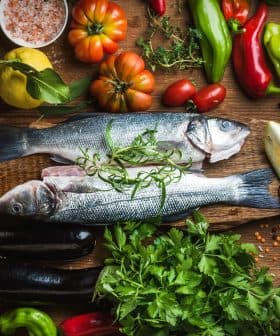Not All Saturated Fats Are the Same for Cardiovascular Health
After examining the association between saturated fat sources and cardiovascular health, researchers recommend higher consumption of staple foods of the Mediterranean diet such as fruits, vegetables and whole grains.
A recent study found that the type of saturated fat consumed can impact heart health, with meat fat linked to higher cardiovascular risk and dairy fat associated with a lower risk. The study analyzed data from 75,000 individuals in various countries and found that those who consumed plant-based protein and dairy products had a lower risk of heart attack, supporting the theory that the type of saturated fat consumed affects cardiovascular health. The study’s lead researcher, Ivonne Sluijs, emphasized the importance of consuming healthy fats, like those found in the Mediterranean diet, to improve heart health.
A study found the source of saturated fat can make a big difference in heart health. While fat from meat is linked to a higher cardiovascular risk, dairy fat is associated with a lower risk.
The effect of fat on the heart depends on the number of carbon atoms contained within the fatty acid chains. While saturated fatty acids in meats have 16 or more carbon atoms, saturated fatty acids in dairy products contain 14 or fewer carbon atoms.
Our analysis of the diets of large groups of individuals in two countries over time shows that the type of saturated fats we consume could affect our cardiovascular heath.
People who consume plant-based protein and dairy products typically have a lower risk of a heart attack.
“Our analysis of the diets of large groups of individuals in two countries over time shows that the type of saturated fats we consume could affect our cardiovascular heath,” lead investigator Ivonne Sluijs, of the Julius Center for Health Sciences and Primary Care at the University Medical Center in Utrecht, Netherlands, said.
See Also:Health NewsThe study examined data from approximately 75,000 people in the U.K., Denmark, the U.S. and the Netherlands. Of these, nearly 3,500 individuals had a heart attack between the study’s onset and the follow-up 13 years later.
In the U.S., saturated fat consumption comes largely from meat; but in Europe, saturated fat intake comes mostly from dairy products.
Although fat consumption from meat sources was linked to a higher heart risk, fat from dairy foods was either inversely related to heart risk or had a neutral effect. The findings lend credence to the theory that the type of saturated fat consumed determines the effect on the heart.
“We found that eating relatively little of the longer chained saturated fatty acids and consuming plant-based proteins instead was associated with a lowered risk,” Sluijs said. “Substitution of those saturated fats with other energy sources such as carbohydrates did not affect the risk to develop myocardial infarction.”
In the 1960s, saturated fat was tied to high levels of bad cholesterol, or LDL, which is a risk factor for heart disease. At this time, experts recommended restricting saturated fat from all sources. However, because of inconsistent results from studies, the association between saturated fat and heart disease has been debated for years.
Recent research suggests the lack of consistency in results stems from the possibility that varied types of saturated fat have different effects on cholesterol and coronary heart disease. Despite the findings in the current study that support the postulation, Sluijs and her research team advise caution before changing dietary guidelines.
In an accompanying editorial, Jun Li and Qi Sun, of the Harvard T.H. Chan School of Public Health, Boston, Massachusetts, advocated consumption of a diet that involves a high intake of fruits and vegetables, as well as the replacement of refined grains with whole grains.
They also advised lowering salt intake and limiting consumption of sugar, red meat and processed meat. Eating the Mediterranean diet, which features fruits, vegetables and whole grains, is a good way to follow these advisories. The study was published in the International Journal of Cardiology.
Kathy Gruver, a natural health author, speaker and practitioner, told Olive Oil Times that following the Mediterranean diet heeds both the advice of the study and the recommendations from Harvard.
“The Mediterranean Diet, which consists of good fats in the form of fatty fish, nuts and olive oil, certainly fulfills the need of getting healthy fats in the diet,” she said. “So if you are being conscious of the fats that you are consuming, changing out lots of meat for olive oil and fish is beneficial. Also, limiting sugar is vastly important and sugar will actually mess with cholesterol more than fat will.”
“Our health is a combination of healthy diet, rational exercise and lucky genetics. Let’s control what we can, which is the diet and exercise,” she added. “Consume as many good fats as you can. Avoid foods that are inflammatory or toxic and engage in regular workouts. These practices can help stave off the effects from genetics that may be completely out of our control.”









